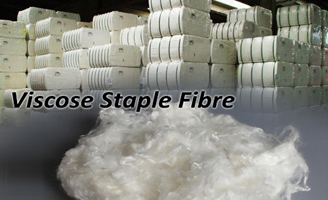Economics
Context: The Association of Man-made Fibre Industry of India (AMFII) has appealed to the Union Finance Ministry to accept the recommendations of the Directorate General of Trade Remedies (DGTR) on levy of anti-dumping duty (ADD) on imports of Viscose Staple Fibre from Indonesia.
About The Association of Man-made Fibre Industry of India (AMFII)
- The AMFII was set up in 1951 as “The Rayon Manufacturers’ Association”.
- In 1959, its name was changed to “Association of Man-Made Fibre Industry of India” to include all the modern Man-Made Fibres of 20th Century origin thereby expanding its scope and membership.
- Thus, the Membership of the AMFII varied from time to time and included both Synthetic and Cellulosic Man-Made Fibres and Filament Yarn Manufacturers.
- On 29th April 1987, the AMFII was registered as a Private Limited Company under section 25 A of the Companies Act 1956.
- It was also registered under section 12 of the Income Tax Act as an organization for charitable purpose for “advancement of an object of general public utility”.
- The main object of the Association is to help the man-made fibre industry in India to formulate general policy on production and development of the industry.
- The Association also acts as a liaison body on behalf of the industry and communicates with the Chambers of Commerce and other public bodies within and outside India, with a view to promote and protect the man-made fibre industry and trade.
- The Association has its Registered Office in Mumbai.
- It has a Branch Office in New Delhi.
About Viscose Staple Fibre:

- Viscose Staple Fiber (VSF), is a natural and biodegradable fiber which has characteristics that are similar to cotton.
- Due to its versatility, VSF is widely used for manufacturing
- Apparels
- Home textiles
- Dress materials
- Knitted wear and
- Non-woven applications.
About Anti-Dumping Duty:
- Anti-dumping is a protectionist tariff, imposed by a domestic government on foreign imports that are at a price lower than the price it normally charges in its own home market.
- Anti-dumping duty is imposed as a remedy to the distortive trade which arises due to the dumping of goods.
- The use of anti-dumping measures as an instrument of fair competition is permitted by the World Trade Organisation.
- Where dumping occurs, the WTO allows the government of the affected country to take legal action against the dumping country as long as there is evidence of genuine material injury to industries in the domestic market.
- The Government must show that dumping took place, the extent of the dumping in terms of costs, and the injury or threat to cause injury to the domestic market.
Source: The Hindu
Previous Year Questions
Q.1) With reference to foreign-owned e-commerce firms operating in India, which of the following statements is/are correct? (2022)
- They can sell their own goods in addition to offering their platforms as market-places.
- The degree to which they can own big sellers on their platforms is limited.
Select the correct answer using the code given below:
- 1 only
- 2 only
- Both 1 and 2
- Neither 1 nor 2
Q.2) Which one of the following situations best reflects “Indirect Transfers” often talked about in media recently with reference to India? (2022)
- An Indian company investing in a foreign enterprise and paying taxes to the foreign country on the profits arising out of its investment
- A foreign company investing in India and paying taxes to the country of its base on the profits arising out of its investment
- An Indian company purchases tangible assets in a foreign country and sells such assets after their value increases and transfers the proceeds to India
- A foreign company transfers shares and such shares derive their substantial value from assets located in India
Q3.) With reference to the ‘Banks Board Bureau (BBB)’, which of the following statements are correct? (2022)
- The Governor of RBI is the Chairman of BBB.
- BBB recommends for the selection of heads for Public Sector Banks.
- BBB helps the Public Sector Banks in developing strategies and capital raising plans.
Select the correct answer using the code given below:
- 1 and 2 only
- 2 and 3 only
- 1 and 3 only
- 1, 2 and 3














